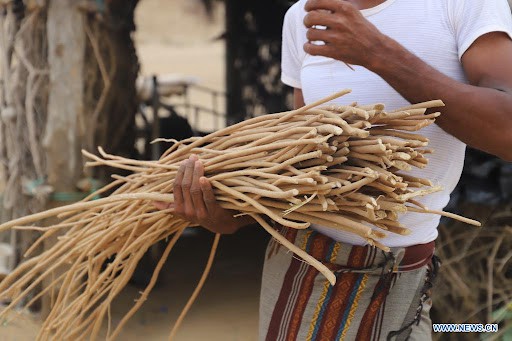
Did everybody’s breath just stink all the time in ancient history?
Q: Before the invention of the toothpaste/mints did people’s breath just smell bad? Were there recorded methods of making one’s breath smell better?
A Historian’s Take: “I can speak for Islamic and pre-Islamic Arabia. Early Islamic tradition emphasizes heavily the practice of using the roots of the native Salvadora Persica tree for oral hygiene. The practice was so common that this specific tree is also known as toothbrush tree, and Islamic tradition stops short of mandating that the roots are used prior to every prayer. Even today sticks made from Salvadora Persica, known as miswak, are popular for oral hygiene in the Arabian Peninsula, India, and generally in the Muslim world. The practice can be found in non-Islamic regions to which Salvadora Persica is native, as well as Islamic regions where the tree is not native.

“Traditionally, the sticks would be harvested from the tree’s roots and twigs then used in their fresh state. The outer bark of the roots is first chewed to form bristles of the inner part of the stick. The bark itself has its own pleasant smell which works like a mouthwash, then the bristled stick is used like a brush. There are entire Wiki-How articles about proper usage of a miswak, so I will not get into the details. Records of trading on the Incense Tradin Route show that dried Miswaks were commonly sold there as well. A buyer would need to soak a miswak in water before they use it. Tracing the daily usages of miswaks in Islamic Arabia one can see a similar pattern to how toothbrushes are used nowadays. Specifically, the prophet of Islam Mohammed was quoted to have practiced and encouraged oral hygiene right after waking up, before social gatherings (to pray), and even before love-making. Moreover, the texts available specificy using miswak to clean your gums, tongue, teeth, and for flossing. Islamic teachings also specifically prescribe miswak as an antidote to both plaque and yellow teeth.”

